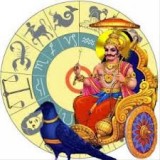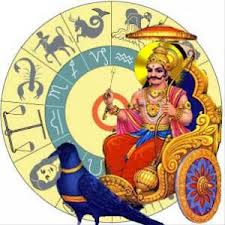
The Vedangas/ Jyotish
The Vedangas/ Jyotish
There are six Vedangas or limbs of the Vedas. These are closer to the Vedas than the Upavedas, being part of the Vedas themselves, the main tools used to interpret them.
1. Jyotish — astrology
2. Kalpa — rules of ritual
3. Shiksha — pronunciation
4. Vyakarana — grammar
5. Nirukta — etymology
6. Chhandas — meters
Of the six vedangas, jyotish or Vedic astrology is the most important. For Ayurveda it helps determine the basic health potential of the person, their disease tendency and possibility of recovery. This is particularly important for patients suffering from severe illnesses and for illnesses that are not responding to normal treatment measures. Vedic astrology is also used for the timing of treatment and for preparing medicines. Even the right therapy done at the wrong time may not bring good results. Astrology helps us understand psychological problems, which are often evident from the birth chart. It is useful in ayurvedic therapies, particularly for showing what gems are best for a person to wear.
Vedic astrology is helpful in yoga for determining individual spiritual potential, for the timing of yogic practices and, particularly, for mantra initiation. An examination of the birth chart is important either for ayurvedic or yogic concerns and is an integral part of a Vedic approach to life. For this reason many ayurvedic and yoga practitioners study jyotish or at least make sure to have access to a good astrologer to consult with as needed.
Four of the six vedangas deal with language. They are the basis of the Sanskrit language and its precise terminology for both yoga and Ayurveda. They are part of the path of mantra yoga, which is very important in both yoga and Ayurveda. Ayurveda uses mantra as the main tool for healing the mind. Yoga uses it as the main tool for purifying the mind and unfolding its inner powers and faculties. Mantra is the most important tool of yoga, Ayurveda and jyotish and the foundation of Vedic science.
In summary, yoga arose as the application of Vedic wisdom for Self-realization. Ayurveda arose as a Vedic method for healing and right living. Both systems are best understood in a Vedic context and help us understand the principles of Vedic living.Yoga provides the means for purification of the mind (chitta-shuddhi) to enable us to gain Self-realization through Vedanta (Self-knowledge). Ayurveda affords us purification of the body (deha-shuddhi) for optimal health and energy. Vastu gives us purification of the home (griha-shanti) for right orientation in space. Jyotish gives us purification from negative planetary influences (graha-shanti) for right orientation in time.
Putting together this entire system of Vedic knowledge — combining Ayurveda, yoga and related disciplines — we have a tremendous resource that can transform both ourselves and our planet if we apply it in our daily lives. This is one of the keys to higher evolution in humanity, a subject that requires much more attention in this age of crisis and transition.
Author: Vamadev Shastri
Acharya Pandit Vamadev Shastri ( David Frawley) is an American Hindu author, publishing on topics such as Hinduism, Yoga and Ayurveda. David Frawley is an expert in ayurveda, Vedic astrology, yoga, and tantra, all of which, he says, have their basis in Vedanta. Indeed it is the interdisciplinary approach to Vedanta that he sees as his particular contribution in demystifying eastern spirituality. David Frawley has written a number of books on all these disciplines, including Yoga and Vedanta, and Ayurveda and the Mind. His Vedic translations and historical studies on ancient India have received much acclaim, as have his journalistic works on modern India. Pandit Vamadeva Shastri was also the founder and the first president of the American Council of Vedic Astrology from 1993-2003. He is also a Patron Founder of the British Association of Vedic Astrology.
(1051)
Latest posts by Vamadev Shastri (see all)
- Vedic Dawn : The Spiritual Reawakening – November 13, 2012
- The Four Vedas – November 21, 2011
- The Six Schools of Vedic Insight – November 20, 2011


